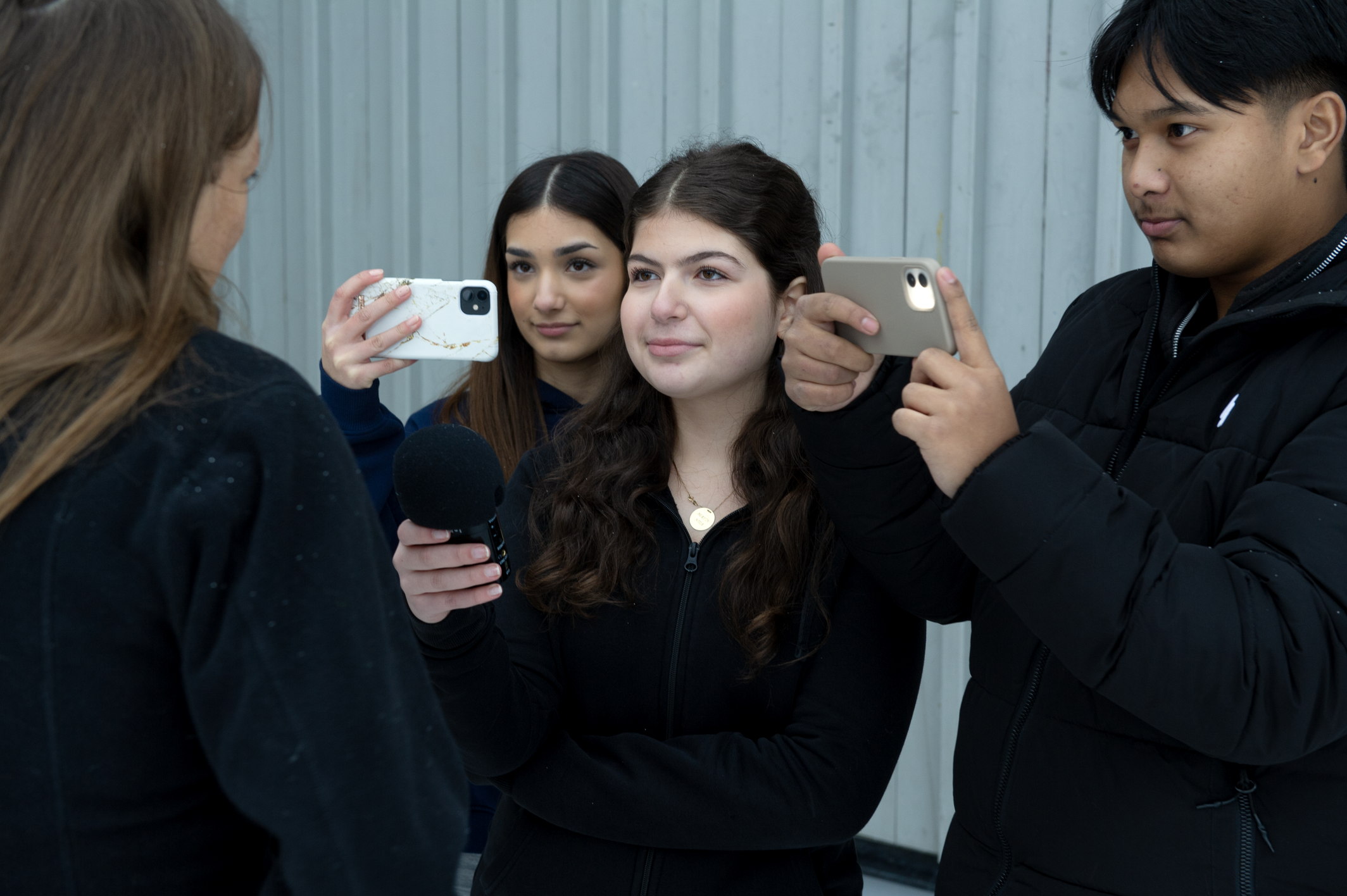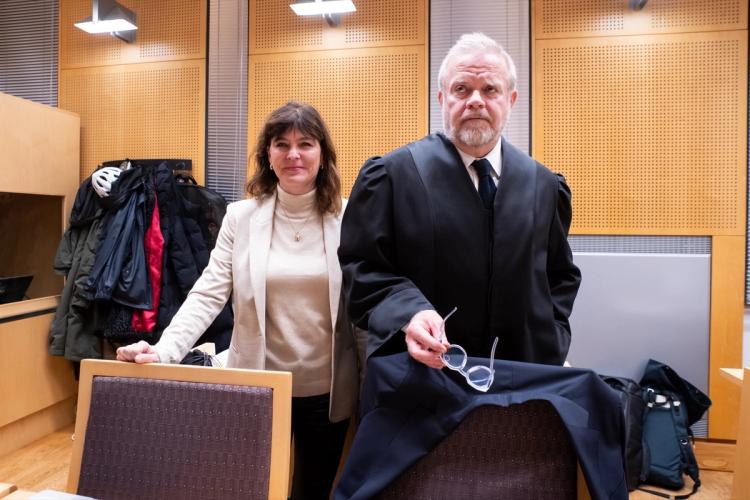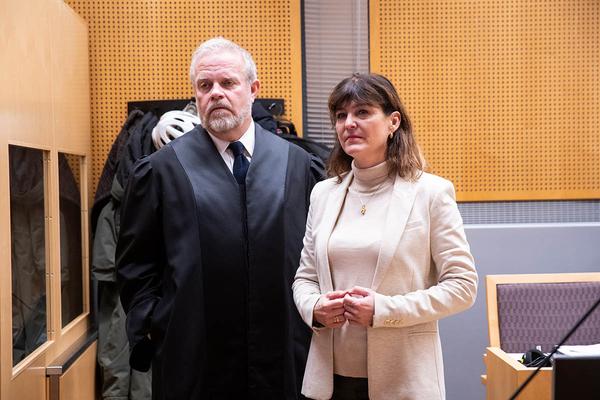5. desember 2019
Journalism in the age of rage

The disruption of media business has fundamentally changed and challenged journalism. Karin Pettersson, culture editor in Aftonbladet, lists five lessons […]
The disruption of media business has fundamentally changed and challenged journalism. Karin Pettersson, culture editor in Aftonbladet, lists five lessons you need to learn as a journalist today.
This article is republished from the Schibsted Future Report 2020 with permission from Schibsted. You can read and download the Future report here.
The news media industry has long lamented the broken business models that followed the digital revolution. Today, 70 percent of the digital advertising money goes to Facebook and Google and media companies are struggling to reinvent themselves through digital subscriptions.
But the disruption hasn’t only affected advertising. It has also, fundamentally, changed and challenged journalism itself.
Historically, journalism has played a central role in shaping public discourse. News organizations have served as gatekeepers and chosen what to amplify. They have always been good at catching the audience’s attention and driving engagement. It has, however, also been about ethics and purpose. But the new public sphere has a different logic than the old. Today, journalism is just one of many actors providing information on what is going on in the world and exists as one of many providers of content in an ecosystem where lies travel faster than the truth and that is optimizing for anger, fear and strong emotions.
In this new world, journalism needs to change, and journalists need to learn about the landscape and avoid the pitfalls.
If we don’t, journalism risks becoming a mirror to the anger-driven social media logic – instead of a counterweight on the side of truth and reason.
Given these new challenges, here are five lessons for journalism in the age of rage:
1. Don’t get your news, angles or sources from Twitter
Twitter is, compared to the bigger social media platforms, a small shop. But in the news ecosystem it is hugely important, and unfortunately often in a destructive way. Journalists, politicians and pundits are overrepresented on the platform, and so are propagandists and manipulators. Still, many journalists still spend a disproportionate amount of time on Twitter, looking for angles and topics. Since the platform is easy to manipulate for anyone with access to money or a network of bots, this makes them easy targets for manipulation.
Twitter also distorts journalism in more subtle ways. Journalists love engagement. Due to the nature of the platform, the content that journalists get the strongest reactions to on Twitter tends to be variations on the big topic of the day – the stories that everyone already is covering.
When journalists spend too much time on Twitter, this can lead to a dumbing down of coverage in a time when what we need is independent, thoughtful journalism looking for the untold stories.
2. Don’t be a useful idiot
The tools of social media were built to connect people and give them tools for expression. It was never the plan, as American tech journalist and thinker danah boyd writes; that these “tools of amplification would be weaponized to radicalize people towards extremism, gaslight publics, or serve as vehicles of cruel harassment”.
That is, however, what has happened.
The hard part for journalists, is how to learn to avoid to become useful idiots playing into the hands of those using the platforms to amplify their agenda. To do that, journalists need to understand how manipulation works on social media.
danah boyd uses the example of the anti-Islam pastor Terry Jones, who in 2010 began using social media to publicly threaten to burn the Quran. His goal was to attract the attention of mainstream news media to promote his congregation, which had around 50 members. Finally, a network of bloggers started to write about him, and finally Secretary of State Hillary Clinton issued a statement condemning him, which led to a massive media coverage. When he finally burned the Quran, the event was covered by every news outlet. The incident led to riots in Afghanistan, resulting in the death of 12 persons.
The question is: was it necessary and important to cover this spectacle? Should the media report on racist provocations from marginal political figures?
3. Political attacks vs relevant media critique
The architecture of the new public sphere makes life harder for journalists. But is also makes their job more important than before. It’s harder, because they can’t single-handedly set the agenda. But also because the undermining of journalism is a central part of the political program of many right-wing populist parties currently on the rise.
The attacks on journalism from Donald Trump in the US, Rodrigo Duterte in the Philippines and Victor Orbán in Hungary are not isolated events. They are part of pattern.
The undermining of the free press is at the center of the political agenda for authoritarians across the globe. It is a difficult balancing act, to on the one hand be aware of the fact that journalism is under attack – and at the same time stay open to justified criticism.
4. Better coverage of big tech
The rise of big tech is one of the most important stories of our generation. Facebook has over 2.3 billion monthly users and YouTube last year had 1.8 billion logged on. The majority of Americans get their news from social media and the same is true of most European countries. Never in the history of humankind have companies existed with such reach and impact on information and human communication.
These new global superpowers need to be scrutinized and reported on, not only from the “tech” angle. Their operations affect democracy, innovation, politics, and the coverage needs to reflect that.
5. Get used to the hatred
Journalists that learned the trade in the old days are not used to the hatred, criticism, threats and aggression directed towards them that flourish on social media and elsewhere today. Since a large part of the attacks are politically motivated, it is unrealistic to believe that they will simply go away. Instead, journalism needs to learn how to thrive and stay focused in this new environment. Individually, journalists need to find the strength and the motivation to go on, without retreating or becoming overly defensive. On an organizational level, editors need to learn how to deal with the stress and psychological pressure that follows, and media organizations should set up smart and efficient security routines for their employees if they haven’t already.
At the end of the day, the attacks are, in a way, a testimony to the importance of the work journalists are doing. (I don’t know how much that helps, though.)
Good journalism has never been as important as now, and never as hard. Journalism can and will survive. But it needs to learn how navigate in a new environment.
This article is written by Karin Pettersson, culture editor in Aftonbladet. Pettersson was until recently director of public policy at Schibsted Media Group.



